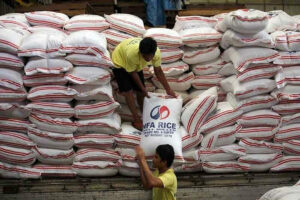THE Department of Agriculture (DA) said on Tuesday that restoring the National Food Authority’s (NFA) power to sell rice directly to the public will go hand-in-hand with expanding the reach of the P20-per-kilo subsidized rice program.
Agriculture Secretary Francisco Tiu Laurel, Jr. added that the NFA hopes to increase its procurement of rice from farmers and sell about 80% of its stock at a markup to generate earnings. These earnings which then be tapped to fund the subsidy.
Mr. Laurel said the plan will rely on the passage of a bill seeking to restore the NFA’s powers, including the power to intervene in the market.
The Rice Industry and Consumer Empowerment Act, backed by Speaker Martin G. Romualdez, seeks to amend the Rice Tariffication Law, which had taken away much of the NFA’s powers, leaving it with maintaining the government’s rice reserve.
“I really feel that the Rice Tariffication Law, as written, will kill our rice industry if it is not amended,” Mr. Laurel said.
Starting Aug. 13, farmers will be entitled to purchase P20 rice with the DA eventually planning to make lower middle-income families eligible, Mr. Laurel said.
By October, the DA plans to launch an app to register households for the program. It will also verify their eligibility to join the program.
Current beneficiaries are senior citizens, persons with disabilities, solo parents, minimum wage earners, and beneficiaries of the government’s flagship conditional cash transfer program.
Mr. Laurel said the DA is also considering tapping public schools as additional outlets for rice distribution.
The P20-per-kilo rice program seeks to reach up to 15 million households, equivalent to about 60 million persons.
The DA plans to allocate P18 billion next year to sustain the program.
Separately, Mr. Laurel said a floor pricing scheme for palay (unmilled rice) needs an enabling law, which is not likely to be passed before the next harvest.
The Integrated Rural Development Foundation is urging Congress to pass a Comprehensive New Rice Industry Law that would establish a minimum farmgate price of P25 per kilogram (kg) for palay.
The proposal, which would ensure farmers earn at least P50,000 per hectare per crop or about P16,000 per month, would incentivize continued planting and increase yields, it said.
It noted that palay farmgate prices have plummeted to as low as P10 per kilo in some areas, below the average production cost of P14.52 per kg estimated in 2024 by the Philippine Statistics Authority. — Kyle Aristophere T. Atienza


















